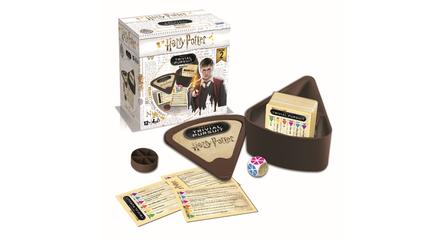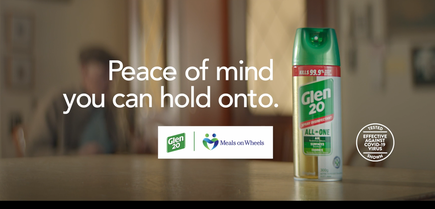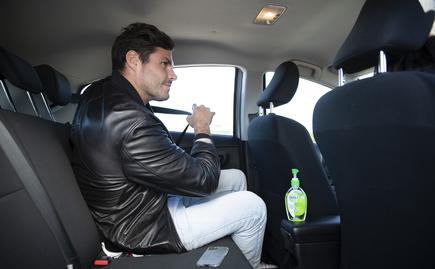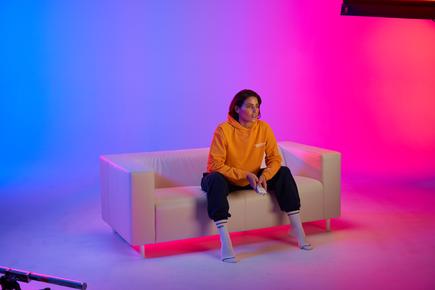10 unusual examples of brand partnerships in 2020
- 18 December, 2020 09:01
One of the interesting things to come out of this year’s unprecedented market conditions was a rethink around external partnerships and collaborations by local and global brands.
In fact, partnerships were so prominent, Deloitte highlighted brands interacting with other organisations as one of its top seven trends exhibited during the COVID-19. According to the consulting giant’s c-suite research, 80 per cent of survey respondents who introduced new partnerships during the crisis also see these as key to business post-pandemic.
Here, we highlight a few of the more unusual, unlikely pairings we saw during 2020 and why they were explored by the brands engaging in them.
Delivery during a crisis: Uber & Co
One of the first retail partnerships inked by Uber in the Australian market during the COVID-19 crisis – but certainly not the only one – was with Petbarn to offer store-to-door same-day delivery services.
Launched initially in Melbourne then rolled out in select nation markets, the service was a direct response to delays in Australia’s post delivery network caused by the spike in online purchasing. Those who order by 4pm can get their order that day within a 10km radius of a store for $9.95.
Alongside this, the retailer’s Petbarn Foundation and Uber offered 20,000 free deliveries to the elderly and disadvantaged unable to leave home due to COVID-19. This was complemented by other community support services including food deliveries to clients suffering financial hardship who are unable to afford keeping their pets, plus services via its vet clinics.
Food and games delivery: Deliveroo and Winning Moves Australia
Another one of the more interesting delivery partnerships struck during the height of lockdown, this time around food, was an alliance between Deliveroo and Winning Moves Australia to provide board games to consumers stuck at home. The board game distributor teamed up with Deliveroo on a new boardgame delivery service in Melbourne giving Australian consumers the ability to buy entertainment along with their food within 30 minutes.
 Credit: Winning Moves
Credit: Winning Moves Thirty different games were on offer, from Friends Monopoly to Harry Potter Cluedo and Morty Trivial Pursuit, delivered via Deliveroo’s Essentials kitchens in Richmond and Collingwood to a catchment area of about 600,000 consumers. Users click on the ‘grocery’ tab and choose their preferred game from there.
Winning Moves Australia commercial head and head of global licensing, Charlotte Waalkens, told CMO at the time that this was an entirely new business strategy for the company. It was prompted by a challenging and unprecedented time of huge change, where almost everyone except for essential workers are being encouraged to stay at home.
“We thought there’s no time like the present to look outside of the box when the world’s ‘normal’ way of life has been disrupted,” she said. “Like everyone, we tried to adapt and help in the way we can – bringing entertainment to people.
Operational necessity: Branded delivery services
Alongside rising importance of existing food delivery services during the lockdown was the introduction of branded-delivery options from QSRs and cafes looking for a way to continue operating while physical locations were shutdown.
One of these examples was Grill’d Delivery, powered by DoorDash’s white-label technology, DoorDash Drive, and debuted in April across 50 restaurants in NSW and Victoria. Grill’d became the first Australian brand to use the white-label platform and will have on-demand access to DoorDash’s driver fleet.
Grill’d managing director, Simon Crowe, told CMO at the time the fast-tracked launch of its branded delivery service was a necessary innovation effort to survive through the COVID-19 crisis and set itself up in a position of strength for recovery.
Brands and community: Brands partner up with charities
There were a host of brands striking fresh partnerships with charity organisations during the height of COVID-19.
Some of these were at a campaign level pledging or aiming to raise funds or awareness of community groups vulnerable during the crisis, others were about recognising essential services workers, while a third camp were about directly delivery of services and support to disadvantaged groups.
 Credit: Glen 20
Credit: Glen 20 Just a few of the charity-oriented partnerships CMO covered this year included a partnership with Glen 20 and Meals On Wheels to encourage Aussies to support the charity during the tough times; Optus’ ‘donate your data’ initiative with the Australian Business and Community Network (ABCN) to provide disadvantaged secondary school students with a free Optus Prepaid mobile plan to keep them connected and support their studies; and Instagram’s alliance with Greyhound Rescue to promote adoption of the retired racing dogs while people are isolating at home during the crisis.
Safety and hygiene: Travel, hospitality brands partner with cleaning products
Then there were the brand hook-ups that came as a direct response to the need for safer and more hygienic travel.
One example was the partnership struck between Uber and Dettol in Australia to provide hygiene kits to ensure Uber drivers could equip their vehicles with hand sanitisers and disinfectants at no cost. The kits were part of Uber’s $50 million global commitment to provide cleaning and hygiene equipment. At the time, the rideshare platform claimed to be the only one in Australia to make these available for every trip.
 Credit: Uber
Credit: Uber This form of partnership was also in evidence globally. United Airlines, for example, partnered with Clorox on ‘United CleanPlus’ as part of efforts to enhance the airline’s cleaning program, redefine disinfection procedures and provide customers with better hygiene amenities at select locations.
Similarly, Hilton and Reckitt Benckiser’s Lysol brand debuted ‘Hilton CleanStay with Lysol protection’, a tie-up which saw the hotel giant prominently using Lysol products in North America in an attempt to reassure on the safety and cleanliness of rooms.
Social connection: Didi and Urban List
Ride-sharing brand, Didi, struck a partnership with lifestyle publisher, Urban List, and launched a supporting campaign, ‘Make it a date’, as a way of encouraging Australians to reconnect with friends and family while supporting local businesses impacted by the COVID-19 crisis.
The partnership centred around Urban List curated recommendations of top social destinations supported by driver and rider feedback. The list stretched from winter igloos at Sydney’s Cargo Bar, to gin masterclasses at the Gold Coast’s Wildflower Gin and drinks in an old bank vault in Perth.
DiDi head of marketing, Douglas Toy, said the date locations list came from 1000 recommendations made by riders and drivers. The wider program is driven by a desire to support communities as Australian tentatively looks to step out of the COVID-19 crisis shadow.
“As COVID-19 was decreasing and retail was lifting, we felt the biggest impact was on riders in isolation. We also knew local businesses were really hurting, so we wanted to support both through our partnership with Urban List,” he told CMO at the time. “We want to encourage people to reconnect and reopen repair the damage isolation causes.”
Up next: 5 more striking brand partnerships to arise in 2020
Page Break
Keeping consumers comfortable: Binge and The Iconic’s inactive wear
As COVID-19 turned staying into the new going out, streaming platform, Binge, and The Iconic partnered on the launch of a line of unisex luxe-loungewear under the ‘Inactivewear’ banner.
 Credit: Binge
Credit: BingeThe range included 19 different pieces, from jumpers, hoodies and sweatshirts to tracksuit pants, shorts and socks and was all focused on comfortable leisurewear that captured the essence of the stay-at-home reality of both sets of customers. The Binge and Iconic partnership also saw local model, Tahnee Atkinson, as brand ambassador for the new line of limited edition loungewear.
Keeping consumers fit: Fashion and FMCG brands dial up at-home workouts
In contrast, keeping fit was a key focus area for a raft of consumer brands looking to keep their customer engaged during lockdown. As a result, a flurry of partnerships were struck between fashion and FMCG brands with workout providers and gyms in order to deliver workout content directly into the homes of consumers.
One such example globally was deodorant brand, Rexona, which committed more than 1 million Euros to supporting fitness experts and communities globally. As part of its efforts, Rexona partnered with movement champions and partnerships, from pop group, Now United, to Chelsea and Manchester City football teams, to deliver creative and fun ways to stay active. These stretched from daily challenges to seven-day workouts.
Other brands tapping similar partnerships with workout experts locally included The Iconic, Stylerunner, PE Nation, Nike, Suncorp and Big W.
Keeping people employed: Woolworths takes on stood down staff from Qantas
COVID-19 left several industry categories forced to stand down staff in the face of huge challenges to their business and revenue generation models. One partnership trend to emerge off the back of this was temporary employment in businesses that were required to rapidly scale up headcount to cope with crisis demands.
A good example of this was Woolworths, which needed to fill 20,000 roles during the height of lockdown. To do this, the supermarket giant struck partnerships with the likes of Qantas, Village Entertainment, Michael Hill Jewellers, Cotton On, Accor and Super Retail Group to take on temporarily stood down employees.
The result was nearly 5000 short-term roles offered to Qantas Group employees taking leave without pay. Woolworths CEO, Brad Banducci, said working with a number of customer-focused businesses impacted by government measures to stop the spread of COVID-19 was both about ensuring it could continue to serve customers, while also supporting the wider community.
“We’re hopeful these businesses will bounce back strongly once this crisis passes, and we want to do our bit to help them - and their people - get through the short-term challenge,” he stated at the time.
Technology access: Coles and Boost Mobile
Even as we come out of the thick of COVID-19 impact, the consumer and societal trends it’s seen brands reckon with continue into the next normal. One of the more recent partnerships we’ve seen exhibiting this long-term impact is between Coles and Boost Mobile, a youth-focused telco brand.
 Credit: Coles
Credit: Coles In November, the pair joined forces to offer Coles customers refurbished Apple iPhones while during their weekly shop. In a first for Coles, the phone comes unlocked but with premium Boost packaging and is bundled with a $10 Boost Mobile SIM. The fully refurbished mobiles with 32GB capacity and priced at $259. .
Boost Mobile claims to be the first major prepaid supplier to offer refurbished smartphones when it launched its online Refurb Store in July 2019. The company said its partnership with Coles underlined the companies’ shared commitments to delivering value for customers while improving sustainability outcomes by extending the useful life of high-quality technology.
“Coles has had a strong mobile phone offering for many years, and this partnership with Boost to offer quality refurbished smartphones is another great way we can deliver value for our customers in a more sustainable way,” Coles general manager Non-Food, Jonathan Torr, said.
Follow CMO on Twitter: @CMOAustralia, take part in the CMO conversation on LinkedIn: CMO ANZ, follow our regular updates via CMO Australia's Linkedin company page, or join us on Facebook: https://www.facebook.com/CMOAustralia.


